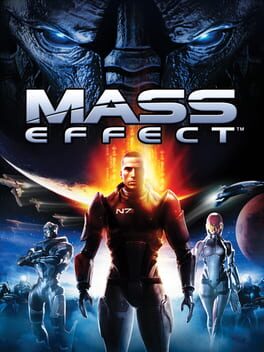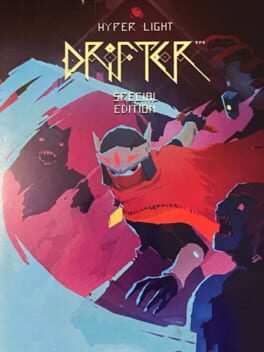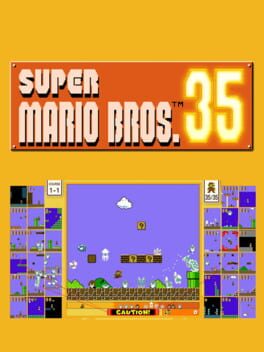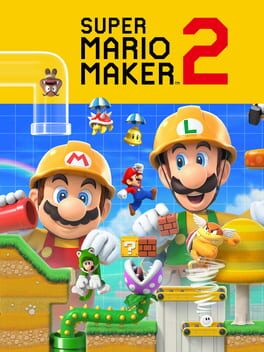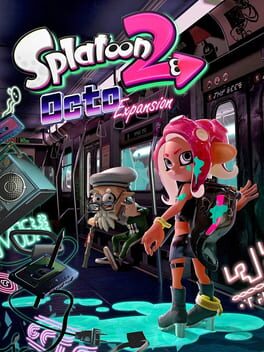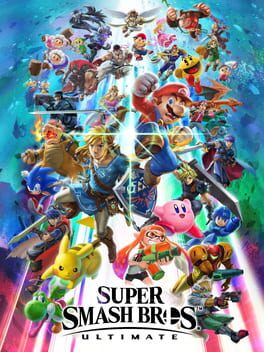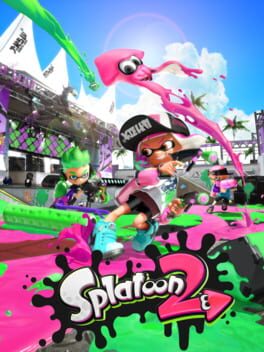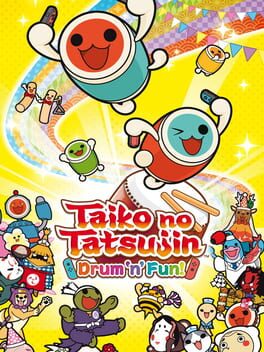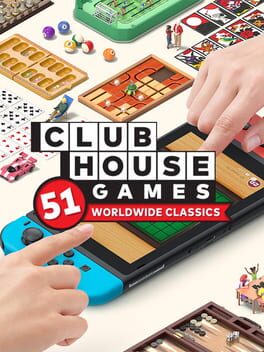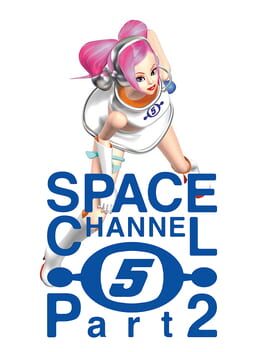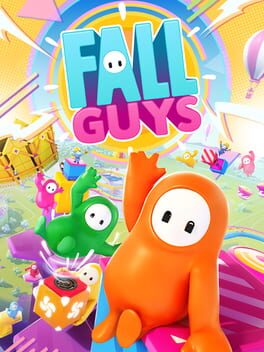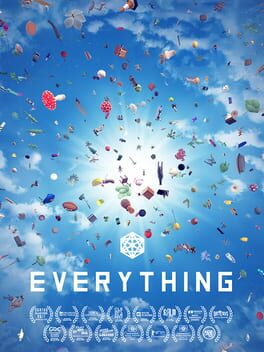kaijudave
2007
(Thoughts Based on Mass Effect: Legendary Edition, PS4 version. Originally played on PC.)
It's been a while since playing the trilogy and I had forgotten how decent the first game plays. Sure, the Mako missions take forever and is wonky to control. The overheating is pretty annoying during the first third of the game. The story could use some flair, too. Despite all that it is still impactful when it needs to be. The dialogue between Shephard and crew is fun between missions, and the choices you make have weight. In terms of the 2021 re-release, it's practically untouched other than the noticeable upscaling and visual lighting. The same bugs still exist on here, which is really funny. Of course all the DLC is included which makes the trilogy collection worth the price.
It's been a while since playing the trilogy and I had forgotten how decent the first game plays. Sure, the Mako missions take forever and is wonky to control. The overheating is pretty annoying during the first third of the game. The story could use some flair, too. Despite all that it is still impactful when it needs to be. The dialogue between Shephard and crew is fun between missions, and the choices you make have weight. In terms of the 2021 re-release, it's practically untouched other than the noticeable upscaling and visual lighting. The same bugs still exist on here, which is really funny. Of course all the DLC is included which makes the trilogy collection worth the price.
2005
This is the type of game that generally makes sense once you actually dive into it with an open mind, but you will not be able to comprehend everything thrown at you the first playthrough. Hell, even with the supplementary material it's still hard to wrap my head around. It's political commentary is interesting in a post-war world, although its social commentary is a bit crude by today's standards. In terms of playing through it again, I would recommend going for the PC remaster, as the higher difficulty mode is unfriendly on consoles. This is probably the only complaint I have 'cause everything else is masterful. I'm in love with the music, the characters, the bonkers plot, the ring-related puzzles, the minimalist yet grungy artstyle... It's peak Suda51 and for damn good reason. It's also not a game I would recommend casually. The game will throw you many bones to get you to understand its on-rails shooting mechanic but it's uncompromising in its playfulness and shitpost humor. You will enjoy it or you won't.
I've been curious about this game for years and I finally bit the bullet this year. Turns out I was missing out on a lot. Anyone will point out that the visuals, sound design, and mystique of this game is pretty top notch. It all serves to ground its world of enemies, town folks, and mysterious forces lurking underneath. I can't say the story is comprehensible as the game revels in being abstract, but it's not entirely needed to know that you just have to defeat some force of darkness that endangers the characters world. On normal difficulty I would say this game is fairly straightforward with how to attack and recognize patterns. It's the dashing mechanic that honestly takes a while to familiarize. If you like collect-a-thons this game will please those urges in spades. The game has been out for a while, so take a shot if you like what you see from the game footage.
2020
I wish I wasn't writing this when the game has long since been over, but it let's me have time to reminisce the good amount of fun I had with this limited-time event. Sure, you basically go through World 1-1 more times than grains of sand on Earth but the game physics are different enough from the original that it truly did feel like a new experience for the first few playthroughs. SMB35 really hones in on your ability to expertly play through the classic, tickling that speedrunner in you. There's no real reward to playing this game other than cosmetics to your level profile, but this is such a small game that it doesn't matter too much. The fun is seeing yourself on top. Secretly, I hope this game comes back but knowing Nintendo it will be a lost relic to time.
2019
Even though my current career path is supposed to be on the creative side, I am ironically not very good with level creation in a game whose core asset is creation. However, all those levels and worlds need the play-testing of other players, and that's where its appeal really shines. It's chock full of daily new content and is readily available through its search feature. With the added development of Worlds, it's even more packed with hours of play-testing. Playing with friends is also another option, as the chaos of charging through levels not meant for co-op only adds to the fun. There's the option of Endless Mode based on difficulty which is a good way to kill a few hours. The main story to this game also exists to complete, which in itself is rather rewarding, too. I haven't bothered to even touch the level-creation mode to this game at all, but I still pulled out so much fun, agony, frustration, and excitement. As long as SMM2 has its creators, I'm more than happy to be one of its players.
1999
I've watched so many playthroughs of this game on YouTube, so many think pieces of this its lore and influence on the world of horror, and it took until this year to play it on original hardware. It's truly a game that feels different when playing it compared to watching it, and I let it all sink in for my first playthrough for a GOOD+ ending.
I will say while the tank controls are extremely outdated, the game treats it as a feature instead of a flaw with locked camera angles that help guide the player. It takes very little time to familiarize with how well it handles these limitations. The game otherwise is a delight from the story to the atmosphere and locales. The soundtrack for the game is also to be commended. While a good portion comes from stock audio horror packs, they've aged to be permanently a part of what makes the first Silent Hill so memorable. For as large as the areas may seem, it's surprisingly linear. You won't ever feel lost unless you're doing the puzzles. Of course some may argue the second title is superior but the original story of a father stepping into cultish shenanigans while looking for his daughter is equally full of awe. This game is a must-play.
I will say while the tank controls are extremely outdated, the game treats it as a feature instead of a flaw with locked camera angles that help guide the player. It takes very little time to familiarize with how well it handles these limitations. The game otherwise is a delight from the story to the atmosphere and locales. The soundtrack for the game is also to be commended. While a good portion comes from stock audio horror packs, they've aged to be permanently a part of what makes the first Silent Hill so memorable. For as large as the areas may seem, it's surprisingly linear. You won't ever feel lost unless you're doing the puzzles. Of course some may argue the second title is superior but the original story of a father stepping into cultish shenanigans while looking for his daughter is equally full of awe. This game is a must-play.
The Octo Expansion is the main reason anyone should get Splatoon 2, which is blunt but ultimately is why the sequel has gotten more longevity. The Octo Expansion is the meat the series, a greater single player campaign that tests the will of seasoned players. The ultimate reward is getting to play as an Octoling, something the game had been teasing with Marina's presence as a member of Off the Hook. It also serves as a transition between Splatoon 2 and the third entry, as you can tell the shift in art style and mood point toward a grander scope yet to come. The rewards may be small but the experience and fun story are worth the price of entry.
Speaking as a casual fan of the game, SSBU is one of the most accessible and jam-packed of the entire series, a fitting way to celebrate both the series and video games in general. While I did enjoy the more defensive meta of the Wii U/3DS, I can't argue that SSBU is overall better with an offensive play-style and faster movement. There may be questionable choices with every buff/nerf update that come with the DLC content, but it hardly impacts what I enjoy of the game as a casual. In terms of content outside of the main fighting, World of Light as a single player campaign has its highs and lows, though collecting "stickers" is not really my thing. SSBU has its traditional mini-games as well, though very underutilized for me. The main attraction with my friend group were private online matches and customizable stages. They lasted hours and were a staple of my gaming experience. While it may piss off fans who prefer Melee's combat meta, this really is the best the franchise has even been.
2017
While I may never get to experience the original Splatoon, the sequel offers roughly the same content with refined game mechanics and bigger personality. You won't be missing much unless you really care about the lore and various assets that didn't carry over. Online matches and team battles may be the name of the game, but most players will gravitate towards Salmon Run. It's one of the most interest modes in the game, where teamwork between online players against boss rushes can be exhilarating. The single player campaign is also a great introduction for players and continues the lore of the Splatoon franchise. As a mode however, it doesn't offer much reason to return past the first playthrough. Online matches can be arguably hit-or-miss as you can get stuck with awful players or young players who don't know what they're doing. Of course, let's not mention that you have to deal with spotty connection due to the NSO's lack of quality. Its friend system is also limiting if you don't have 3 friends at the ready, so it's a very underutilized function. Aside from aspects that are outside the game's control, its brimming personality gets your pumped to play every time and its slice of downtown keeps the vibes homey. Even after splatfests ended, I still found myself returning to this now and again. We'll see how its legacy continues on the third entry, but do enjoy this game while it's still relevant.
One of the few Taiko no Tatsujin games to make it to the West (along with the PS4 sister game), it presents the current state of the arcade game in its best form for home consoles. It's got quite a variety of songs at launch, with plenty of DLC to satiate the need for more. There's great party games that I enjoyed with friends, and the recent online mode is a plus for this version. I wish I could play it as often as other rhythm games but I am not the greatest with this one, nor do I care for the harsh difficulty spikes between modes. Still, it's been like this for the franchise for years so I can't really complain there. I would recommend this as a great entry into the franchise, and happy drumming to you if you're able to acquire the taiko accessory only available to Europe and Japan.
I'm not usually one to care about "classic board games collection" games because it can be made cheaply. Yet here comes Clubhouse Games showing us all that you can in fact make an excellently curated selection of games from around the world. The online function is what really sold me and became a staple in my friend group due to how relatively timeless board games are. The only downside is that they made confusing choices with the online multiplayer where some games are limited regardless of game (eg, bowling limited to 2 players, Chinese checkers having no 3 player option, etc.). In terms of the general look, they lean into the cute human game pieces giving you a tour through the whole game and it's incredibly charming. They really want you to understand how to play every single game, and it's done so intuitively and with a lot of respect to the player. You can measure your mastery through each classic game through small challenges. The game progression even comes with fun trivia and cosmetic unlockables. Overall, I enjoyed this game way more than I had anticipated.
2016
For as much as I love to meme this game and talk about how absurd the creation of Soda Drinker Pro is, it's not exactly fun to play if we're being serious. The comedy of seeing each poorly drawn world gets old when your movement is the speed of a dying cactus. The inclusion of Vivian Clark and the mystery behind it does allure me, but it too is ultimately not worth seeing to the end. I will compliment the soundtrack for this game, available to purchase on Steam. It's good background music. Treat Soda Drinker Pro as a fun, quirky game and you'll get a fun, quirky time.
Space Channel 5 is one of the my favorite rhythm game franchises, bar none. I've sunk a ton of hours into both 1 and 2 despite being real short games. However, I grew up on the first game while I didn't get to play Part 2 until very later in life on Steam. I was fascinated to see the differences between both games. Part 2 is way more forgiving with the timing, has way more background animation going on, and introduces a lot of extra game modes and secrets. It's a grander and more sleek package compared to the original. I especially love the return of the original cast with the addition of new characters and villains you get to meet. This comes with some sacrifices, with the game not being as challenging even on the Extra Report missions. The voice acting is also awkward as it seems to use clips from different voice actors for the same character (correct me if I'm wrong on that but it's noticeable on the Steam version). Part 2 is also a hassle on Steam when the audio and game inputs don't synchronize. I would recommend the original console version for this one, but otherwise you're experiencing the game as intended.
2020
It's terribly easy to dismiss this game but I find it hard to think of any other game that takes the minigame competition concept to this level. When you've got cute beans, a colorful array of obstacle courses, and constant addition of content, it's hard to complain when the formula is this effective. The big kicker though is whether you're good at platformers in general, because Fall Guys rides and dies on that gameplay philosophy. There's no other activity available that isn't platforming, and progression through each season is dependent on a good performance. Given that it's an online game too, lag and internet connection can make each round frustrating to traverse. Otherwise, when everything's in order, it's comfort food for my tired-out body.
2017
I like what this game is trying to do and it is a lot of fun for a couple hours, but Everything does feel like an interactable art installation rather than an outright "game." Of course, your general objective is to discover all the ways you can possess everything around you. Through that possession you toy with how different things and beings interact with each other. You listen to audio recordings from philosopher Alan Watts and these audio bits create thought exercises related to what you're doing. Your enjoyment of the game heavily depends on that appealing you, and I don't know if I'll ever want to finish this game when the objective isn't very fulfilling for me. I will say I respect what Everything is trying to accomplish and to give the game a bit of your time if anything I said sounded appealing.
